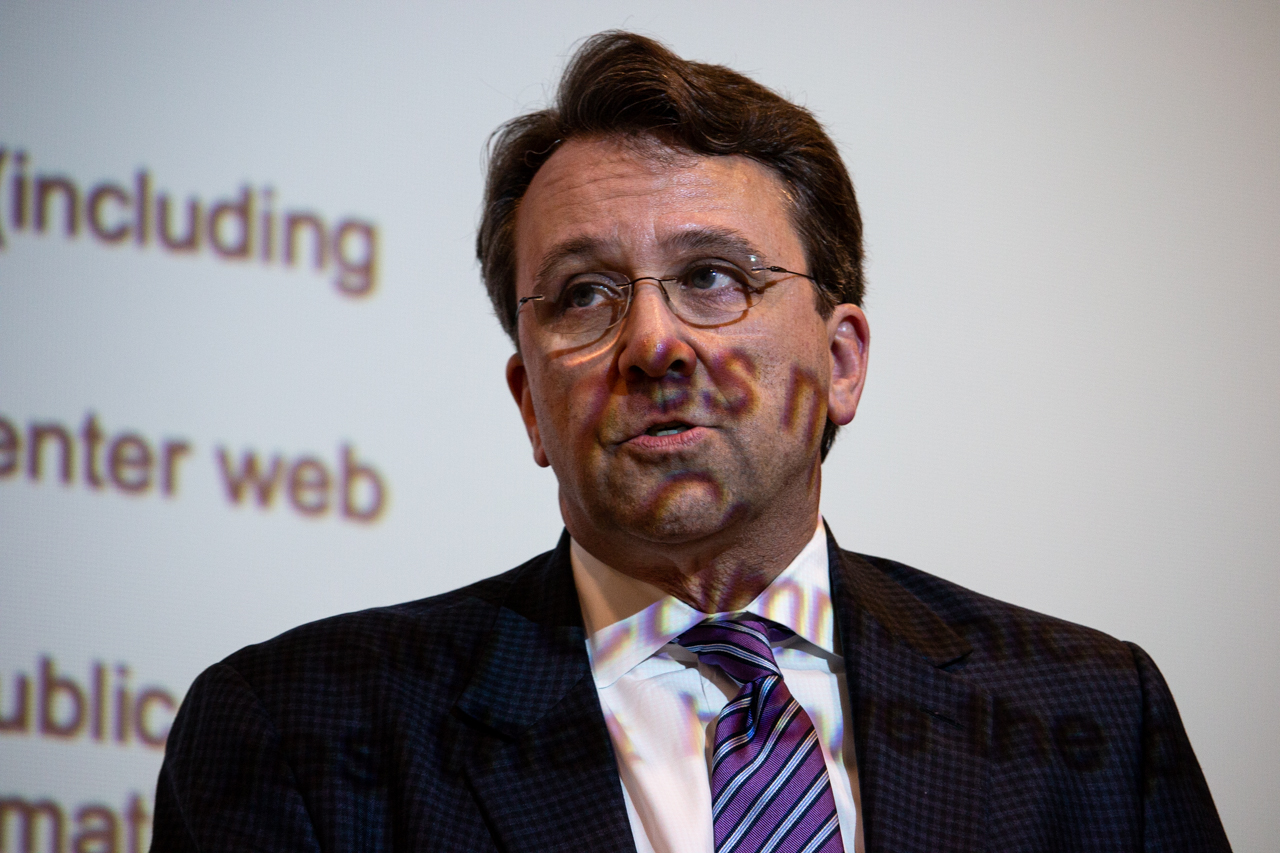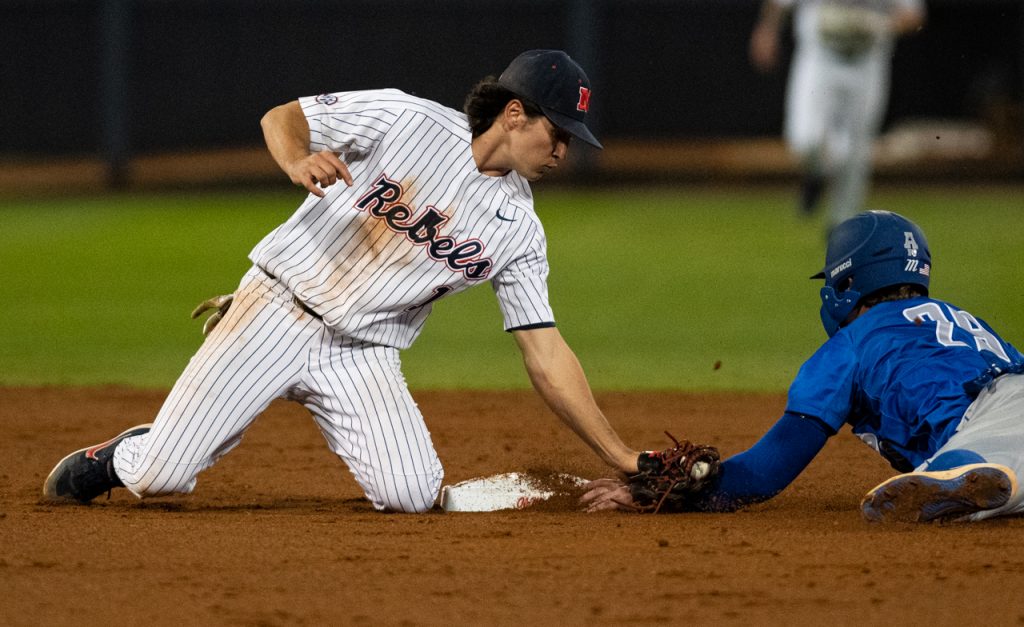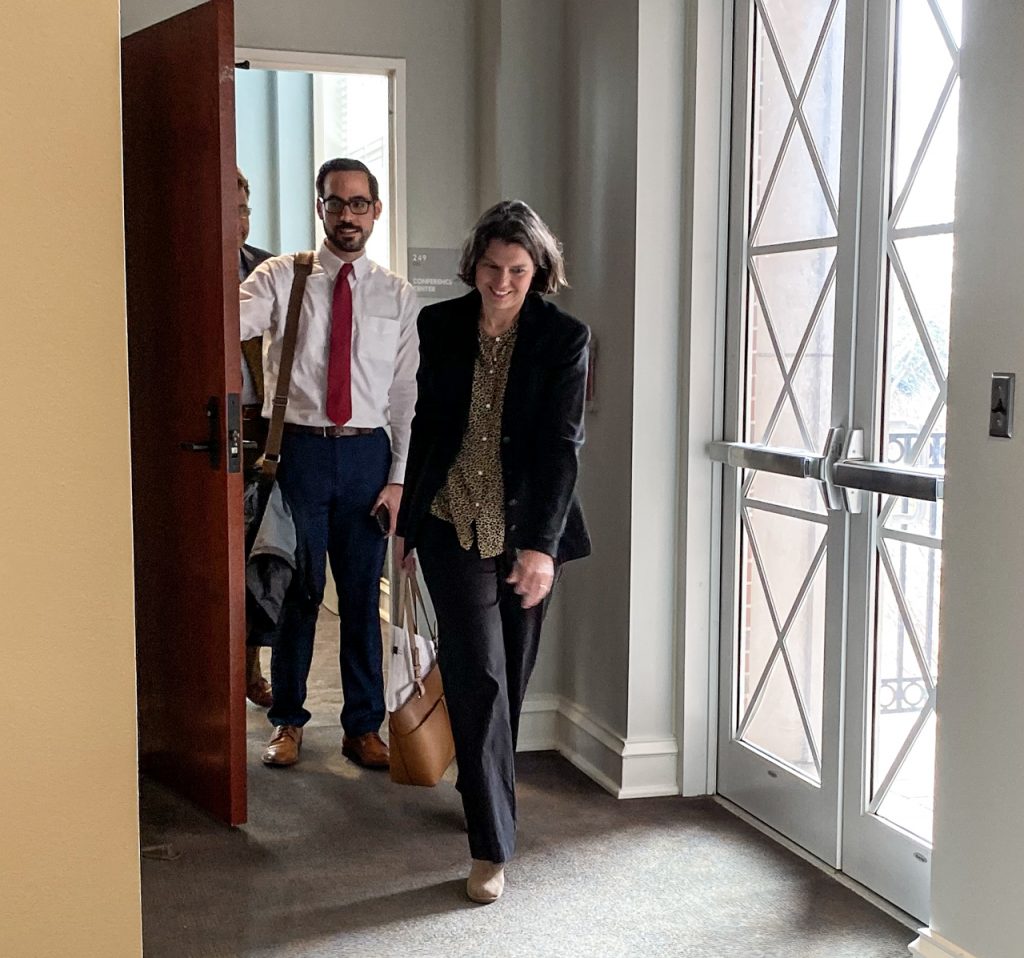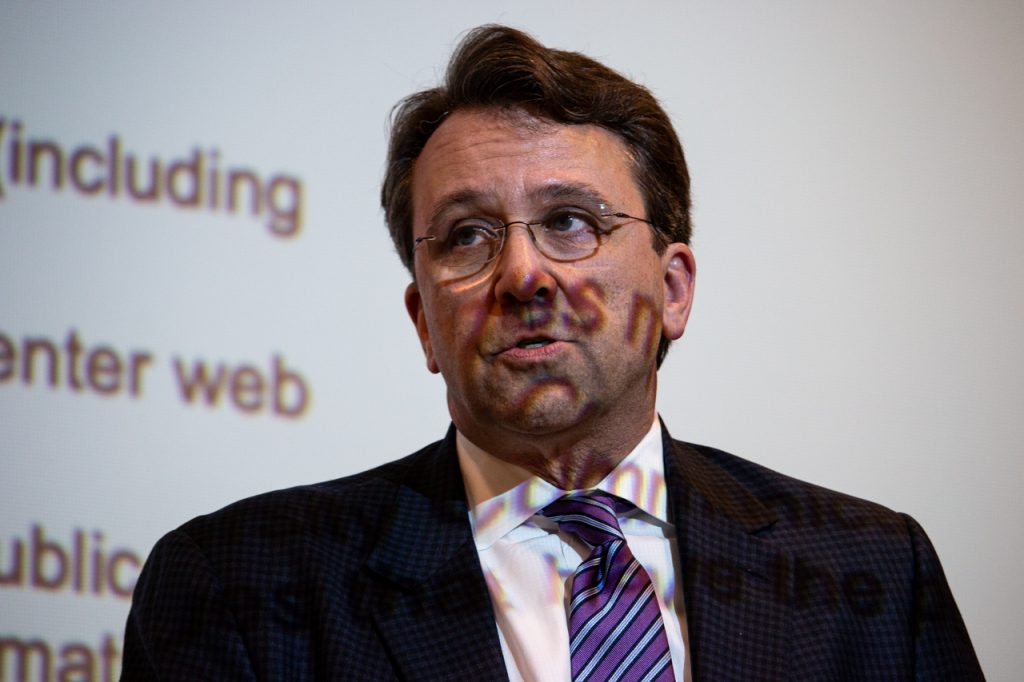
University Marketing and Communications (UM&C) representatives Jim Zook, Rod Guajardo and Ryan Whittington attended the Faculty Senate meeting Tuesday night to get feedback regarding the new communications policy draft. No faculty members spoke in support of the policy, and many called for further review of the proposal by more campus constituencies.
Randy Watkins, associate professor of chemistry, said that he no longer says that he works for the university on his Facebook page after reading the policy. Watkins took issue with section 2.4 of the social media policy, which says: “When using social media as a part of their official duties and/or when presenting oneself in social media settings, all faculty and staff should conduct themselves in a way that is befitting of the institution.”
“What constitutes being a representative of the university?” Watkins asked. “(When I do interviews), they always identify me as ‘professor of chemistry and biochemistry at the University of Mississippi,’ so does that mean I’m an official representative of the university?”
Watkins said the ambiguity of the draft policy is what concerns most faculty because the policy can be actionable within their departments, which UM&C did not object to when asked about it.
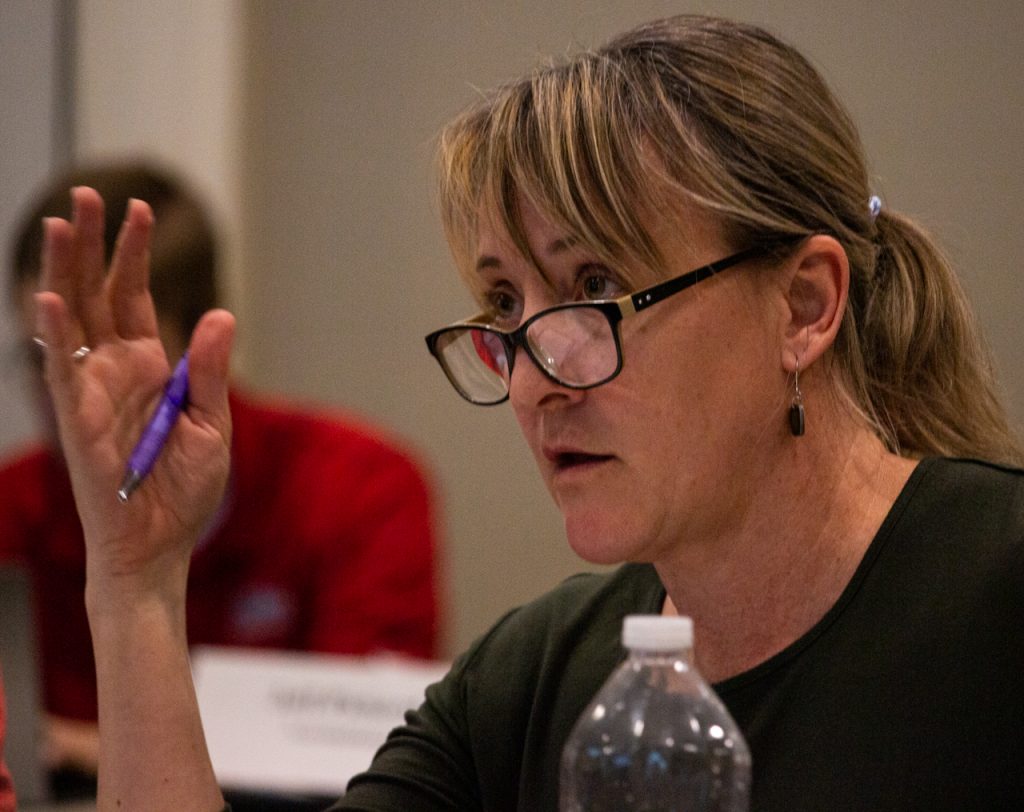
“There’s lots of room in here to say, ‘You violated this part of this policy. You’re fired,’” Watkins said.
When hypothetical questions were raised, Zook typically referred back to the language in the policy instead of giving specific answers.
Charles Stotler, an air and space law instructor, said he attended the closed meeting with UM&C representatives and faculty on Monday afternoon, and his main concern was the section of the draft policy on news releases.
The policy says that all university news and media advisories “must flow through and be approved by UM&C” before publication. He said this was problematic for the law school because they often have to issue press releases quickly to get ahead of issues.
“Where compliance may implicate a breach of professional, legal responsibility, we will not comply with it,” Stotler said.
Zook reiterated several times that UM&C did not have to bring the draft policy before the Faculty Senate for approval and that they were doing so in an effort to be transparent at the request of the Provost’s Office.
He added that UM&C has taken input from deans and the provost’s office in addition to meeting with the Faculty Senate executive board and journalism school faculty regarding the draft policy.
Michael Barnett, chair of the school of theatre and film, said UM&C should expand the range of input that they gather to include staff and representatives from all schools on the campus so that they don’t run into issues with specific schools, like the law school.
“I would encourage you all, as you continue to work on this — if you continue to work on this — to engage the Faculty Senate directly,” Barnett said. “Not just come in here and say, ‘Look at what we’ve done.’”
Phillis George, an assistant professor of higher education, encouraged UM&C to rework the language they used in the draft policy to make it less “draconian.” She said that the vagueness of the language was threatening and undermined the trust needed for departments to carry out the policy effectively.
“Our hope is not to pick you apart tonight; we appreciate the work that you’ve done,” George said. “Our hope is that with us — as well as other campus constituents — we can put together a policy that is meaningful, effective and well-received by all of us, but that’s going to take some time, and this is not it.”
